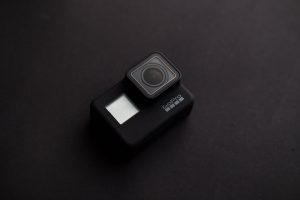IonQ (IONQ) quantum tech is superior to its peers, head of Air Force Research Labs quantum tech says US, UK, Canada, NZ, and Australia are collaborating on quantum applications for unaided navigation, encryption, communication and sensors/ML. A joint field test will be conducted this summer. The small size of IONQ’s processors and lack of need for cooling (done by lasers), they believe, will allow them to be mounted inside aircraft. Some testing of this is underway already. AF believes trapped ions are the superior QC method and there is “much more to come.”
Dell collaboration is moving past the test phase, but specifics were kept under lock and key.
MIT’s Center For Quantum Computing believes there will be many winners, depending on the usage needs for each system, but IONQ’s small form (ie the QPU can be held in the palm of your hand vs you being able to walk inside it) and the ability to operate at room temperature continue to be significant practical advantages for scaling. IONQ has confirmed they are on track for a rack mounted system.
Using trapped Barium-133 ions appears superior to Ytterbium. It is rumored that is what IONQ has now been using.
Mark Solomon, who worked in quantum computing sales at IBM before joining IONQ, said unequivocally when asked that he “left [IBM] because IONQ’s tech was far superior on every front.”
Confirmed QCWare did derivative calculations for Goldman Sachs on IONQ systems.
Staff plans to have 200 employees by the end of 2023. It currently stands at 100, up from 60 last year.
Here is a synopsis of day 2 of Q2B. Despite the stock price, it was a VERY significant one for IONQ. Once again, I do not take credit for the information provided here, just compiling it and few thoughts of my own. The credit goes to those on the ground reporting it live.
The QC industry stands at $490 million, but is growing 3x faster than the classical computing industry. It appears most in the industry agree the point of critical inflection is 2-3 years away. This is in line with my personal research into the industry and is important because a year ago the most optimistic estimates had it 5, 10, or even 20 years away. There is zero doubt at this time that IONQ leads the pack. Everyone else is trying (and might) catch up.
The Air Force presentation yesterday foreshadowed todays announcement using Barium-133 in the next generation of QCs. This allows for 99.98% gate fidelity BEFORE error correction. That alone should blow your mind if you understand this stuff. If not, they are also able to use cheap and easily sourced visual lasers to control individual atoms through SOFTWARE. This speaks to the new level of precision. In addition to this, they are working on 3 more generations of QCs. That is to say the Barium computer is not a plan or theoretical – it’s being used. There are 3 additional ones already being worked on. When the 3rd generation comes out, it is nearly impossible to believe they won’t have 70+ algorithmic qubits, which is generally held as the standard for true quantum supremacy.
The Barium laser software controlled QC is likely why not only Dell chose to work with IONQ, but also the US, UK, NZ, Canada, and Australian militaries.
In private, both Peter Chapman and Mark Solomon agreed that this will be the technology that is able to scale up, be modular, and overtake classical computing forever on complex calculations.
2-3 years, possibly sooner, we will be headed towards the dawn of a fundamentally new era not only in the company, but human history. The stock price will eventually catch up, but this is difficult stuff for experts, let alone Main Street, to grasp. It will happen though, and much sooner than people used to think.
This article was written by u/Gloomy_Type3612.





